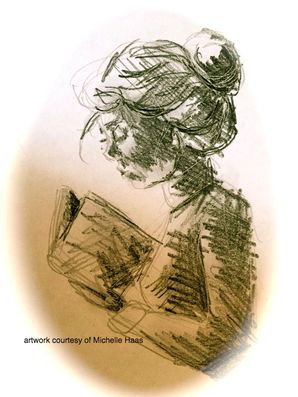Write daily. What I learned from participating in the 2018 NaNoWriMo challenge, and writing 50,000 words in November, is that I must set daily writing goals to truly immerse myself in my writing. It's fine, and even healthy, to take a day or two off between stages of perfecting a manuscript, but it helps to keep that bus a movin' as consistently and often as possible, so as not to lose touch with your characters and plot. Otherwise, you might find yourself having to backtrack and re-read much of your work, just to get back into the rhythm of the story.
Query. As a staff writer for a Pittsburgh newspaper, I really didn't take the time to do much querying of my fiction work over the past several years. I plan to rectify that in 2019. Though the (exhausting) process requires researching viable agents/editors, perfecting the query letter/synopsis/pitch, making sure the submission is truly error-free and follows submission guidelines (which vary widely), etc., it's important to remember that the manuscript or personal essay or poem isn't going to publish itself. If the goal is to publish, you HAVE to eventually take that leap of faith and put it out there.
Organize. With three completed young adult and picture book manuscripts ready for submission, plus an additional three young adult WIPs and one women's fiction WIP, I'd be a dolt not to organize my queries. Don't annoy your favorite agent by inadvertently sending a second query, for the same work, because you didn't keep track of your submissions. There are many ways of organizing your queries. I used to use a basic notebook, handwriting in every submission with contact info, date, response, etc. This past spring, I developed an Excel spreadsheet that allows me to keep a digital record. Here's my query template. Feel free to use/alter. Writer's Digest has also created a number of excellent writing tracker spreadsheets, available for free download here.
Save. Saving your manuscript only on your computer is risky business. My husband finds it hilarious that I have a sizeable box of USB flash drives with every copy of everything I've ever written. I keep one such flash drive in a location outside my home. Another option, something I intend to do in the new year, is to upload files to an external hard drive or cloud storage using Google Docs or Dropbox or the like. Periodically emailing recent copies of WIP files to yourself, or a trusted other, may also suffice. I've done that with recent work, but none of my older files. Again, risky business. If your home office goes up in flames or computer crashes, you want to be able to retrieve your work digitally, somehow.
Read what you write. In 2019, I plan to read at least two books a month in my writing genre. Since I write mostly picture books, young adult and (just recently) women's fiction, I must make time to read books in those genres. Read. Read. Read ... what works, what doesn't work, and everything in between. You will be a better writer for it.
Write what you love. I love reading epic fantasy but have never tried my hand at it, because the world-building seems like it would be beyond my capability. If you love reading a particular genre, but have never given it a go, maybe 2019 is the year to get out of your comfort zone and write what you love.
Finish. I won't lie. Two of my WIPs began their journey over five years ago. I'm about 150 pages in on each of them. Sometimes it's easy to start a new project but also easy to give up when the words stop flowing. I am making it my goal, in 2019, to really take a good look at what I've got in my WIP folder and determine what is worth finishing. Then do it. Just do it. If you have multiple projects that got off the ground quickly but stalled, maybe they are worth another try. Finishing takes work. If it didn't, everyone would be a published author.
Rah, rah, ree ... Kick 'em in the knee. Have a fantastic start to your new year, my writerly friends. Hit your goals and make 2019 something to cheer about! I'm rooting for you.
Artwork by Michelle Storm Haas.
#SundayRead #WIP #writingtips #writingtip #writer #SCBWI #amwriting #amquerying #powerofpages



 RSS Feed
RSS Feed

